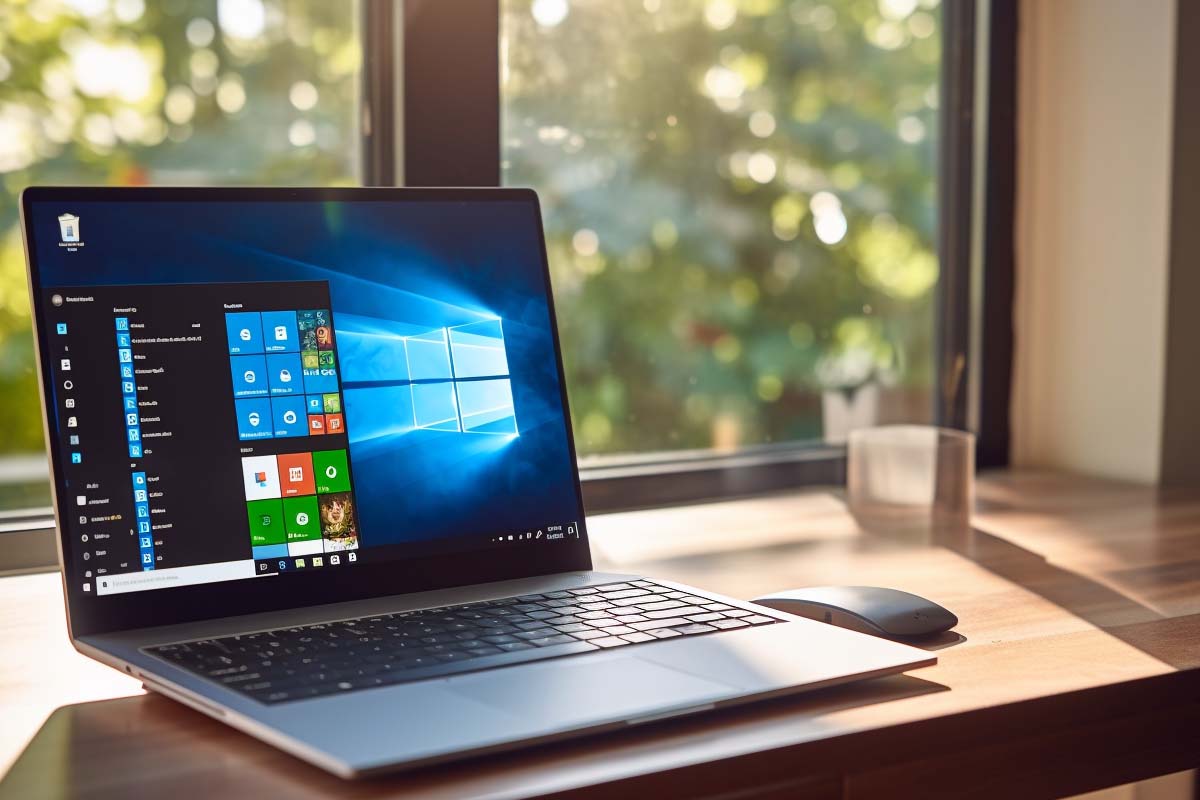Remote Server Administration Tools (RSAT) for Windows is a suite of tools provided by Microsoft that allows administrators to manage roles and features that are installed on remote servers which are running Windows Server. These tools are designed to run on a client computer (Windows client) and connect to the server remotely, providing a convenient way for administrators to manage servers without having to log in to each server directly.
RSAT can manage various features and roles, such as Active Directory, DHCP, DNS, File Services, Group Policy, and others. It’s especially useful in environments where there are multiple servers, and centralized management becomes crucial.
Network Administrator Career Path
This comprehensive training series is designed to provide both new and experienced network administrators with a robust skillset enabling you to manager current and networks of the future.
Here are the key points about RSAT (Remote Server Administration Tools):
- Compatibility and Versions: RSAT is available for various versions of Windows, but it’s essential to download the version that corresponds to your client computer’s Windows version and the version of the servers you intend to manage. For example, there’s an RSAT version for Windows 10, but it’s different from the one for Windows 11.
- Components: RSAT is not a single tool but a set of tools. You can choose to install only the specific tools you need. For example, if you only want to manage Active Directory and Group Policy, you can install just those components.
- Installation:
- Windows 10 (Pre-version 1809): RSAT needs to be downloaded as a separate package and installed.
- Windows 10 (Version 1809 and later) and Windows 11: RSAT can be installed as an optional feature directly from the Settings app under ‘Apps & Features’, or through PowerShell.
- Usage: After installation, you can access the RSAT tools through the Start menu, or you can search for the specific tool you need (like Active Directory Users and Computers, or Group Policy Management).
- Permissions: To use RSAT to manage servers, you’ll need the appropriate administrative credentials on the servers you’re aiming to manage. RSAT doesn’t bypass security; it’s a tool for administering systems for which you have authorization.
- Network Access and Firewall Considerations: The client computer where RSAT is installed needs network access to the servers. Firewall and security settings might need to be adjusted to allow for proper communication between the RSAT client and the server.
The RSAT Toolset
The Remote Server Administration Tools (RSAT) suite includes a variety of management tools and consoles designed to streamline the administration of Windows Server roles and features. The specific tools available may vary slightly based on the version of Windows and the updates installed, but generally, the set includes:
- Active Directory Tools
- Active Directory Administrative Center
- Active Directory Domains and Trusts
- Active Directory Sites and Services
- Active Directory Users and Computers
- ADSI Edit
- Active Directory module for Windows PowerShell
- DHCP Server Tools
- DHCP Management Console
- DHCP module for Windows PowerShell
- DNS Server Tools
- DNS Manager
- DNS module for Windows PowerShell
- File Services Tools
- Share and Storage Management
- File Server Resource Manager
- Services for Network File System management console
- iSCSI management console
- Storage Manager for SANs
- DFS Management
- File Server Resource Manager Tools
- Hyper-V Tools
- Hyper-V Manager
- Hyper-V module for Windows PowerShell
- IP Address Management (IPAM) Client
- Network Policy and Access Services Tools
- Network Policy Server Tools
- Routing and Remote Access Tools
- Remote Desktop Services Tools
- Remote Desktop Gateway Manager
- Remote Desktop Licensing Diagnoser
- Remote Desktop Session Host Configuration
- Volume Activation Tools
- Update Services Tools
- Windows Server Update Services Tools
- API and PowerShell cmdlets
- Group Policy Management Tools
- Group Policy Management Console
- Group Policy Management Editor
- Group Policy Starter GPO Editor
- Group Policy PowerShell module
- Server Manager
RSAT also includes command-line tools and PowerShell modules that provide a scripting interface for server management, adding flexibility and automation potential for administrators.
It’s important to note that not all tools are available in every version of RSAT, and some may depend on the specific roles and features installed on the target servers. Furthermore, Microsoft occasionally deprecates certain tools or components in newer versions, replacing them with more modern management interfaces or utilities.

Lock In Our Lowest Price Ever For Only $14.99 Monthly Access
Your career in information technology last for years. Technology changes rapidly. An ITU Online IT Training subscription offers you flexible and affordable IT training. With our IT training at your fingertips, your career opportunities are never ending as you grow your skills.
Plus, start today and get 10 free days with no obligation.
Key Term Knowledge Base : Understand these Key Terms When Discussing or Working With RSAT Tools
When discussing or using RSAT (Remote Server Administration Tools), it’s beneficial to be familiar with certain terms and concepts. Here’s a table with relevant terms and their definitions:
| Term | Definition |
|---|---|
| Active Directory (AD) | A directory service developed by Microsoft for Windows domain networks. It stores information about members of the domain, including devices and users, and allows administrators to manage permissions and access to network resources. |
| Domain Controller (DC) | A server that responds to security authentication requests (logging in, checking permissions, etc.) within the Windows Server domain. |
| Group Policy | A feature in Windows that provides centralized management and configuration of operating systems, applications, and users’ settings in an Active Directory environment. |
| PowerShell | A task-based command-line shell and scripting language designed especially for system administration. RSAT tools can be used through PowerShell cmdlets. |
| DNS (Domain Name System) | A hierarchical decentralized naming system for computers, services, or other resources connected to the Internet or a private network. It translates more readily memorized domain names to the numerical IP addresses needed for locating and identifying computer services and devices with the underlying network protocols. |
| DHCP (Dynamic Host Configuration Protocol) | A network management protocol used on IP networks whereby a DHCP server dynamically assigns an IP address and other network configuration parameters to each device on a network so they can communicate with other IP networks. |
| File Services | Services that provide a system for storing, accessing, and managing files on a network. |
| Hyper-V | A virtualization feature built into Windows, which allows users to create and run a software version of a computer, called a virtual machine. |
| IP Address Management (IPAM) | A method used to plan, track, and manage the IP address infrastructure on a network. |
| Network Policy Server (NPS) | A networking server that allows you to create and enforce organization-wide network access policies for client health, connection request authentication, and connection request authorization. |
| Remote Desktop Services (RDS) | A server role in Windows Server that provides technologies that enable users to access session-based desktops, virtual machine-based desktops, or applications in the data center from both inside a corporate network and from the Internet. |
| Volume Activation | A product activation technology used to activate Windows operating systems and Office products. |
| Server Manager | A management console in Windows Server used to install, configure, and manage server roles and features. |
Understanding these terms can significantly enhance your grasp of RSAT and its capabilities within a Windows Server environment.

IT User Support Specialist Career Path
View our comprehensive training series covering all the key elements and certifications needed to successfully excel in an IT User Support Specialist job role.
Frequently Asked Questions About RSAT
What is RSAT and why is it important for system administrators?
RSAT (Remote Server Administration Tools) is a suite of tools provided by Microsoft that allows system administrators to manage roles and features of Windows Server remotely from a client computer. RSAT is crucial for administrators as it enables them to manage the infrastructure without having to log directly into each server, thus streamlining and securing the management process by centralizing tasks.
Can RSAT be used to manage servers that are running different versions of Windows Server?
Yes, RSAT can be used to manage different versions of Windows Server. However, it’s important to note that the version of RSAT installed on the client machine should correspond to the version of the Windows client OS you are using, and it’s recommended to use the latest version of RSAT compatible with your client OS for managing earlier Windows Server versions.
How do I install RSAT on my Windows 10 or Windows 11 system?
For Windows 10 (version 1809 and later) and Windows 11, RSAT can be installed as an optional feature directly from the Settings app. Go to ‘Settings’ > ‘Apps’ > ‘Optional Features’ > ‘Add a feature’, then select the specific RSAT tools you need and install them. Alternatively, you can also install RSAT using PowerShell commands.
Are there any prerequisites or considerations before installing RSAT?
Before installing RSAT, ensure your computer is running a compatible version of the Windows client OS. You should also have network connectivity to the servers you intend to manage and the necessary administrative privileges on those servers. Furthermore, check for any specific dependencies or prerequisites for the particular RSAT tools you plan to use.
Can I use RSAT to manage servers remotely over the internet or only within my local network?
RSAT is primarily designed to manage servers within a local network or corporate environment. However, with proper network configuration and security measures (like VPN, correct DNS settings, and necessary firewall configurations), you can use RSAT to manage servers over the internet. It’s crucial to ensure secure connections to protect your servers and data when managing them remotely over the internet.

























